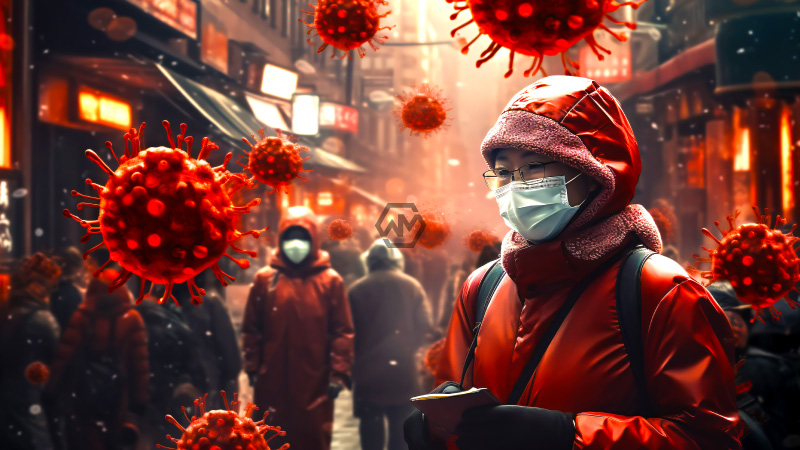- Influenza-like illness (ILI) is defined as a fever greater than or equal to 100°F, in addition to a cough or sore throat, without an alternative cause.
- Pneumonia is a form of acute breathing infection that impacts the lungs.
- A pathogen is commonly defined as a microorganism that reasons, or can cause sickness.
According to the WHO, there has been an increase in “influenza-like illness” in northern China since mid-October compared with the same period in the previous three years.
“WHO has made a professional request to China for specified data on the increase in breathing sicknesses and clusters of pneumonia in kiddies,” the UN health enterprise said in a statement on Wednesday.
Respiratory Disease
“WHO has made a legitimate request to China for specified data on the increase in breathing diseases and clusters of pneumonia in kiddies,” the UN fitness employer said in a declaration on Wednesday.
Beijing’s National Health Commission (NHC) told reporters last week that the rise in respiratory illness was due to the lifting of COVID-19 restrictions and the circulation of known pathogens, including flu and common bacterial infections affecting children.
China’s capital has “entered a season of high occurrence of respiratory infections,” Wang Quanyi, deputy director and leader epidemiologist of the Beijing Center for Disease Control and Prevention, informed state-run Beijing news on Wednesday. He added that Beijing is “currently showing a tendency for multiple pathogens to co-exist.”
On November 21, the media and public disease surveillance organization ProMED reported clusters of undiagnosed pneumonia among children in northern China.
The WHO said it was not clear whether ProMED’s statement was related to the officials’ press conference and that it needed to be clarified.
The agency also requested more information on influenza, SARS-CoV-2 (the virus that causes COVID-19), RSV, which affects children, and mycoplasma pneumonia, as well as recent trends in the circulation of known pathogens. The extent of overcrowding in the health system,” the report added.
Meanwhile, it urged people to take preventive measures including getting vaccinated, keeping their distance from sick people, and wearing masks.
The Chinese capital is currently experiencing a cold snap, with temperatures expected to drop below zero by Friday, state media said. The WHO did not respond to China’s request for more information.



